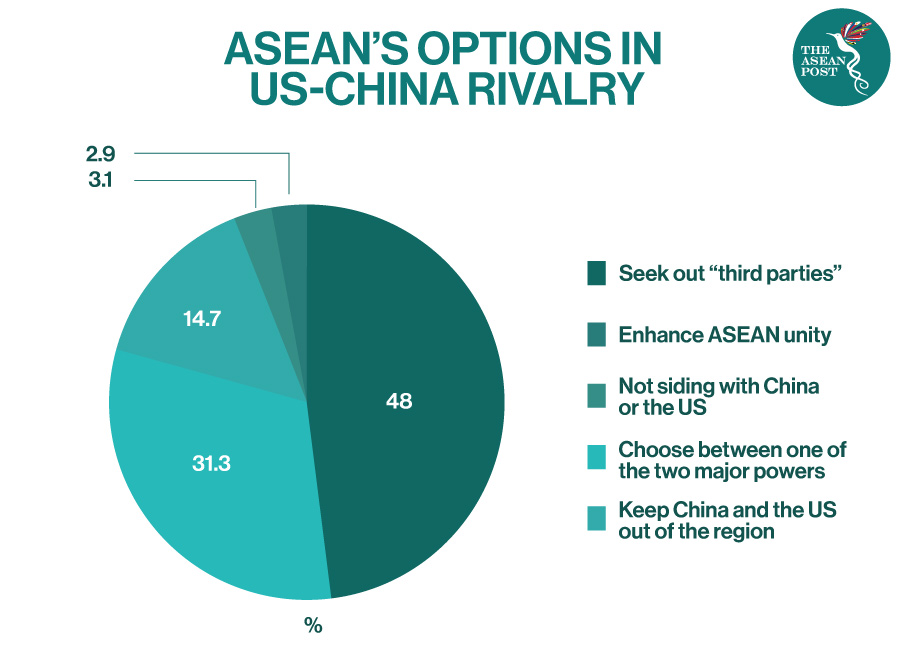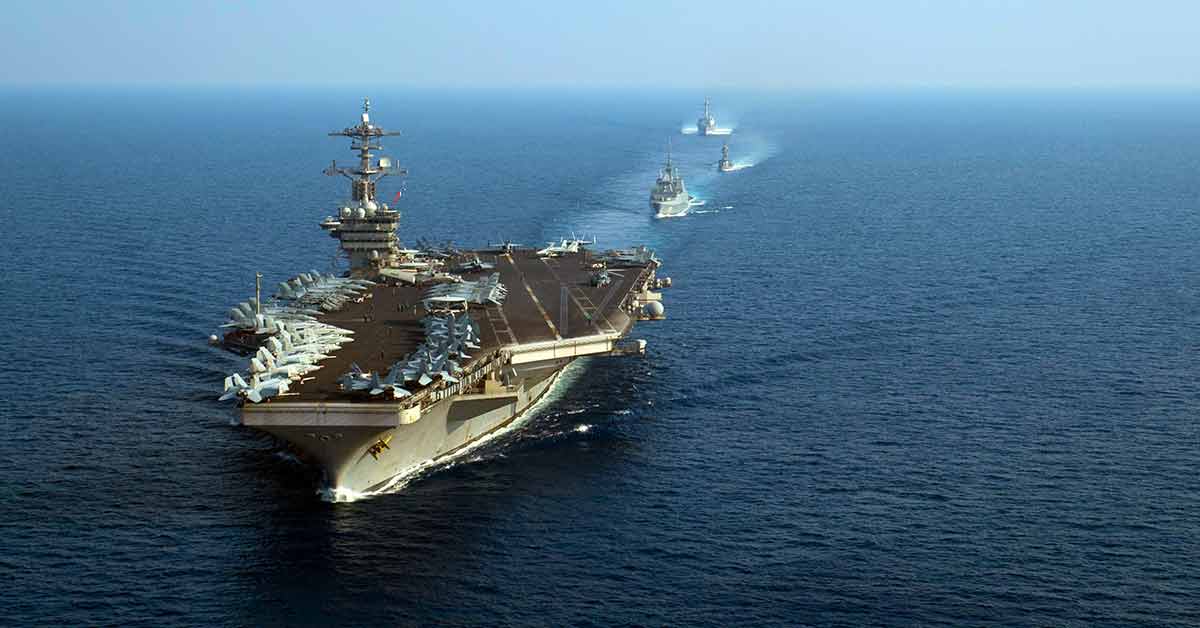It seems that instead of de-escalation, the bilateral relations between the world’s two largest economies has gone from bad to worse following the recent visit of Alex Azar, the United States (US) Secretary of Health and Human Services to Taiwan; the imposition of economic sanctions on the 11 current and former Chinese officials including Hong Kong’s chief executive Carrie Lam over the imposition of a new national security law in Hong Kong; Washington’s banning of the Chinese social media apps “Tiktok” and “WeChat”; and the recent actions of Washington against China’s Confucius Institutes in the US, labelling the centres as advancing Beijing’s global propaganda.
These are but new additions to the set of provocations and points of conflicts being choreographed and stage-managed by the Trump administration against China since the advent of the novel coronavirus pandemic.
Moreover, on 5 August, a US spy plane was spotted flying over the South China Sea (SCS) near Guangdong. According to reports, it was initially identified by the air control radar system in the southern province of Guangdong as a commercial airliner, flying at more than 9,000 metres (29,500 feet) over the SCS. The aircraft was eventually identified as an E-8C Joint Surveillance Target Attack Radar System Aircraft, a military/spy plane. It was doing scouting activities near the southern Chinese coast.
This incident pushed Chinese Defense Minister Wei Fenghe to initiate a 90-minutes phone call with his American counterpart Mark Esper. Likewise, US military spy planes like the “RC-135” and the “EP-3E” were also reported surveying the SCS during the past two months. Such spying activities using military aircraft that look like commercial planes are accordingly risky, dangerous, accident-prone, and may cause misjudgements amid the escalating tensions between China and the US.
The worsening relations between China and the US and the on-going brawl between Beijing and Washington is slowly pushing the two superpowers closer to a Cold War.
Chinese Response To US Provocation
Amid the rising tensions between China and the US, several high-ranking Chinese officials have expressed that China is keen and eager to resume talks with the US on any level. On 5 August, Chinese State Councillor and Foreign Minister Wang Yi said, “We are willing to start frank and effective communications with the US and respond calmly and rationally to the impulsiveness and restlessness of the US. We can restart the communication channels with the US on all levels and in all fields any time, and any issues can be brought to the table.”
Wang’s pronouncements were seconded by senior Chinese diplomat Le Yucheng, China’s foreign vice-minister. Le expressed that he is ready to talk with his American counterparts any time to explore possibilities of stabilising US-China relations and to put forward efforts to prevent China-US ties from further degeneration.
Among the issues that Le identified that the US and China can work on include, the COVID-19 pandemic, economics and trade, narcotics, climate change, poverty alleviation, North Korean nuclear issues, and Middle East security.
However, Le like any other Chinese official also made it clear that Beijing would not “give-in” on issues it regarded as its “core interests and national dignity.” He said that “on issues concerning China's core interests and national dignity, there is simply no room for us to back down. If we give up an inch, they will ask us to back off a mile and through salami tactics, they will never stop undermining China's sovereignty and dignity.”
Le’s stance was again affirmed by another Chinese diplomat, Yang Jiechi, a member of the Communist Party Politburo and is considered China’s leading diplomat, who called on both China and the US to seize opportunities for cooperation. Like Le, Yang expressed that Washington should respect Beijing’s “core interest” and “avoid making misjudgements”.
Hence, it is clear that issues related to Taiwan, Hong Kong, Tibet, Xinjiang and China’s sovereign maritime and territorial claims on the SCS, are but part and parcel of its “core interests and national dignity”, and therefore not part of the issues that China is willing to make concessions with the US. This makes the said issues all the more contentious than they already are in the context of US-China bilateral relations.

China-ASEAN COC
On the issue of the disputed waters, Chinese diplomat Wang Yi has expressed recently that the way forward towards dispute resolution in the SCS is the “Code of Conduct (COC) in the SCS” and dialogue without the intervention of the US and other countries not party to the dispute. China is pushing for the COC with the 10-member states of the Association of Southeast Asian Nation (ASEAN) and wants the negotiations done by 2021.
But talks were stalled because of the novel coronavirus pandemic. Wang has implored ASEAN member-states to resume talks on the COC. He reiterated that China and ASEAN member states have reached an unequivocal consensus that they will work together to safeguard peace and stability in the SCS through dialogues and consultations based on consensus.
Thus, the eagerness of China to wrap-up and bring the COC to a conclusion is an encouraging development. The COC is important as it provides a framework of rules, principles, norms, and decision-making procedures for the management and resolution of disputes among the claimant-countries over the SCS. An ASEAN-China COC on the SCS will create new forms of commonality and cooperation among the parties through dialogues and negotiations. It is a viable diplomatic mechanism as it can provide international rules-based order for the SCS.
However, if the ASEAN-China COC is to be concluded and adopted, all parties need to show a great deal of ingenuity, strong resolve, and political will. Also, for the ASEAN-China COC to be more effective, it must be supplemented by the institutionalisation of additional multilateral and bilateral negotiations among claimant-countries on matters related to fishery management, environmental cooperation, and oil and gas development among others, which are important economic issues that might trigger potential conflicts if not addressed.
For instance, the Philippines and China signed a memorandum of agreement (MOU) on joint oil and gas exploration in the West Philippine Sea (WPS), more specifically in the Reed Bank, which is part of the disputed waters during the visit of Chinese President Xi Jinping in November 2018. The said MOU states that the two countries agreed to accelerate arrangements for joint exploration in maritime areas following international law. China has pledged to give the Philippines the bigger chunk, 60 percent of the revenues from the planned joint project.
The arrangement is consistent with Philippine law (Presidential Decree No. 87), which mandates a 60-40 percent sharing arrangement in revenues from the exploitation of the country's natural resources, in favour of the Philippines. If this joint oil and gas exploration between China and the Philippines succeeds, this to some extent will boost the mutual trust and confidence between the two countries. It will also serve as a “win-win” compromise that will not only benefit both countries but may trigger the resolution of disputes between the two over the SCS.
China Should Walk The Talk
Moreover, to facilitate trust and confidence-building measures, China has to refrain from incursions into the exclusive economic zones (EEZ) of other claimant-states.
A recent report by the Philippine Navy (PN) confirming the presence of Chinese ships at the Recto Bank that is part of the Philippines’ EEZ in the West Philippines Sea (WPS), where two Chinese ships have been seen circling since 6 August without clearance, is a concrete illustration of the need for China to show resolve that it is indeed sincere in its declarations that it wants to peacefully co-exists and resolve the SCS dispute amicably.
China must “walk the talk” and its actions should be more reflective of its pronouncements and declarations. It should behave more constructively and responsibly vis-à-vis other claimant states over the SCS if it wants to be seen as a responsible actor with credibility while correcting the negative perceptions of China held particularly by many Filipinos and citizens in other claimant-states.
Conclusion
Clearly, in the on-going “cold war” between China and the US, the former seems not pre-disposed to follow the path of Germany which led to World War I, or that of Germany and Japan leading to World War II. Also, China seems not inclined to follow the path of the great powers vying for global domination during the Cold War between the US and the Soviet Union.
However, given the rising tensions and continuous exchanges of provocation between the two superpowers, it remains to be seen in the coming days, if the social and economic “complex interdependence” of the two countries, despite the worsening bilateral relations, will prevail and prevent an outright clash.
Nonetheless, the two superpowers of the 21st century should not repeat the mistakes of their predecessors as wars between great powers, no matter how inadvertent, hardly end well for everyone.
In the same manner that relations between China and the claimant-states of the SCS should not be treated as a zero-sum game; relations between China and the US should also not be handled and managed in a similar fashion. China and the US should find a compromise to co-exist peacefully and cooperatively.
A cold war between the two superpowers will only lead to the progression of conflicts in the world at a time where cooperation is very much needed because of the novel coronavirus pandemic. In the era of COVID-19, cooperation between China and the US is indispensable and vital to global survival, stability, and peace.
The dispute on the SCS must be resolved by the claimant countries alone through bilateral relations and multilateralism within the ambit of ASEAN mechanisms like the COC because this is by far the most pragmatic and viable avenue to the easing of tensions over the disputed waters that is accepted by all parties concerned. The process of building consensus may prove to be difficult but is not impossible; while confrontation on issues surrounding the disputed waters surely is self-defeating.
The US and other countries which are not party to the conflict should refrain from intervening so as not to muddle and complicate the issues surrounding the SCS further.
However, China must take greater responsibility and behave constructively and responsibly as a stakeholder in the SCS with other claimant countries.
Related Articles:

